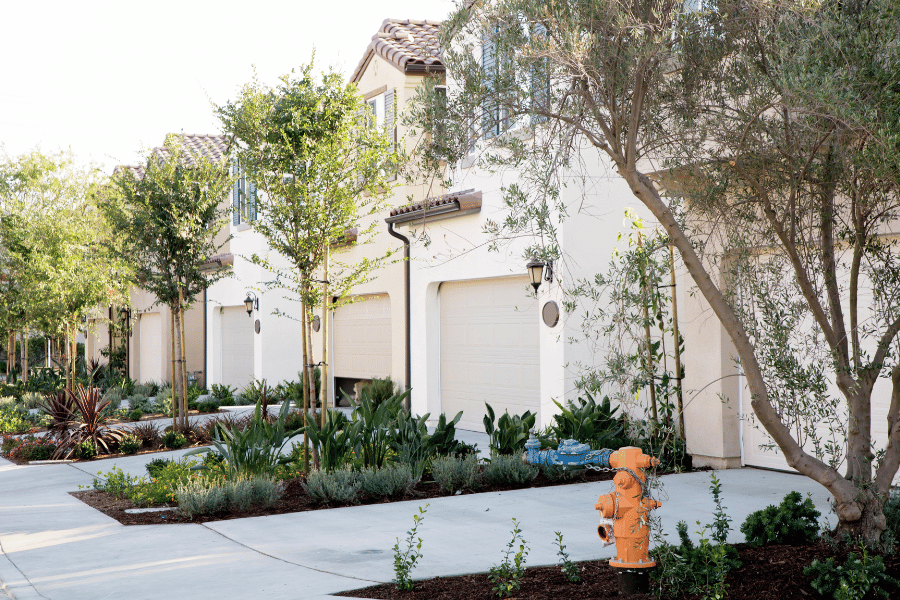What is a Deed?
What is a deed, and why is it important? Here is what you need to know about deeds in real estate, with information on the main types of deeds and the difference between a deed and a title.
Many folks ask what a deed is at some point during the real estate transaction or even during a real estate agent's time at a real estate school.
Those new to the real estate industry and are closing a transaction for the first time are often confused by the terms and jargon used in the real estate transaction process. "Deed" and "title" are two terms commonly used in the real estate industry that are often mixed up.
However, despite deed and title commonly being used interchangeably, they are two very different concepts and should not be confused, as they refer to different aspects of the transaction process.
1. What is a Deed?
A property deed is a legal document that transfers property ownership from the seller to the buyer. It is a physical, official, written document typically recorded in most states' courthouses or assessors' offices. The deed is the document that transfers the title, which is explained in further detail below.
To make the deed legal, it must be signed by the person selling the property, referred to as the grantor. The term 'grantee' refers to the person possessing the property. In addition to being signed by both the grantor and the grantee, a deed must include a property description.

2. What is the Title?
Although the term 'title' sounds like a physical document, it is a concept – not a document – that refers to a home's legal ownership. The deed is the physical document that transfers the title from the seller to the buyer. The title refers to the property's 'bundle of rights,' which includes the following:
-
Right of possession:
This indicates that you own the property. -
Right of control:
You can use the property however you want (as long as you abide by the law). -
Right of exclusion:
You can say who can and cannot enter your home. -
Right of enjoyment:
You can host gatherings, play sports, swim in the pool, and enjoy your home however you choose – as long as you don't break the law. -
Right of disposition:
You have the right to sell the property.
3. What is the Difference Between a Deed vs. a Title?
Due to the similar roles the deed and title play in the real estate industry, they are often used interchangeably. However, they are two very different legal concepts. A deed is a physical document recorded publicly that transfers the title from the seller to the buyer.
The title is a conceptual term indicating that an individual holds the legal rights to a property – it is not a physical document. As a general guide, keep the following in mind when considering the difference between deed and title:
Deed = Document
Title = Concept

4. What Does it Mean to Have Your Name On a Deed?
Having your name on a deed indicates that you legally own the property. If you own a home with a partner but your name is not on the deed, your partner can legally sell the home and keep the proceeds (unless you have a document specifying a different arrangement).
Alternatively, if your partner passes away and your name isn't on the deed, you cannot inherit the property – unless a provision in the will states otherwise. For those reasons, it is important to have your name on the deed when sharing a home with a partner so that you have the right to occupy, sell, or place a mortgage on the property. The deed should not be confused with the sales contract, which refers to the property sale agreement.

5. What Are the Main Types of Deeds?
Several categories of deeds are available, offering different title levels. Whatever the level is, deeds help you prove your property ownership. There are two types of deeds: private and official.
Official deeds primarily involve executing legal proceedings in court, whereas private deeds involve residential homes and private property. Most property transactions involve private deeds. In addition to private and official deeds, a deed can be based on title warranties and the deed type. This includes the following types of deeds:
General Warranty Deed
A general warranty deed is used when a seller guarantees the buyer that there aren't any liens or claims against the property. If liens, encumbrances, or claims arise against the property, the seller compensates the buyer. Buyers will get the utmost protection concerning legal problems with a general warranty deed.
The grantor must provide an official guarantee through legal promises called covenants. The good thing about this type of deed is that the owner gains the property's selling rights under its protection. However, a general warranty deed is not just about safety.
Special Warranty Deed
Also referred to as a limited warranty deed, a special warranty deed is similar to a general warranty deed in that the former owner guarantees that there aren't any encumbrances against the property. However, they are only responsible for covering the property for the period that they owned the property.
If the property has had five different owners, the seller only guarantees there weren't any encumbrances when they owned the property – without any guarantee for the time before they owned it. Special warranty deeds are used in commercial transactions more than residential sales. Choosing a general warranty deed over a special one is typically advised to ensure legal protection.
Grant Deed
Known as a limited warranty deed, a grant deed only protects the buyer from two specific warranties. The first warranty assures the buyer that the former homeowner has not transferred the property to anyone else.
The second assures the new buyer that the house did not have any problems during the time when it was in the former owner's possession. A grant deed is limited in not protecting a homeowner from any other claims that may have arisen against the property.
Quitclaim Deed
With this type of deed, the grantee does not guarantee that the grantor is interested in the property. If it turns out that the grantor does not have title to the property, or there are any problems with the title, the buyer cannot take legal action against the seller.
This type of deed, like a special warranty deed, gives the least protection to the grantee. With a quitclaim deed, the seller does not make any promises or warranty related to the title. If there are any problems with the title, the buyer cannot take legal action against the seller, and the seller is not held responsible.
For the deed to be useful, you must provide a fair and affirmative title without errors. If the title happens to be defective, the buyer cannot take any legal action. Quitclaim deeds are typically only used when transferring property to family members or adding a spouse to the property title.
Bargain and Sale Deed
With a bargain and sale deed, when the buyer gets the title, all the liens or any other problems with the property are passed onto the buyer. It is similar to a quitclaim deed in that it holds no guarantee for the buyers. Bargain and sale deeds are not commonly used – the only time this type of deed is used is typically during foreclosures, estate sales, and tax sales.
A bargain and sale deed is not as strong as a warranty deed but is typically better than a quitclaim deed. Sometimes, a bargain and sale deed will specifically include one or more guarantees, known as a bargain and sale deed with covenants, similar to a special warranty deed.
6. How Many Names Can Go On a Deed?
There is no limit to the number of people who can go on a deed. If you want to include your partner's name in the deed, you will have to have a new deed if you wish to add your partner's name to the property title to make them a co-owner. Meeting with an attorney to know the risks behind such decisions is advisable.
If you and your partner are both included on the deed but only one person is on the mortgage, whoever's name is on the title is responsible for paying the mortgage. If your name is on the deed but isn't on the mortgage, you are not legally obligated to make mortgage payments.
7. What is Title Insurance?
Title insurance protects you from problems arising in your home before buying it. For example, let's say the former homeowners had plumbing work completed, but they never paid the plumber. The owner of the plumbing company may place a debt against the property, typically called a 'lien.'
Purchasing title insurance ensures that that lien will not impact you as the new homeowner. Most mortgage companies require that the homeowner purchase title insurance as an added form of legal protection. In some cases, private mortgage insurance will also need to be purchased, though there are ways to get rid of it.
In addition to protecting you against liens, title insurance protects you against any property loss, damage, defects, or encumbrances in the title to the property. Title insurance is typically paid one time when you close on the home. It differs from car or health insurance in that it protects new homeowners from problems that may have affected the home before buying it. Other forms of insurance – such as car or health insurance – protect individuals from problems that may arise.

How Does Title Insurance Work?
When you sell or purchase property, a transaction record is stored publicly in the county where the property is located. Additional event records are also added, including levies or liens held against the property.
After purchasing title insurance, the title company searches these public records for possible problems concerning ownership. A title examiner is responsible for verifying ownership and debts on a particular property. In reviewing public records, the title company's underwriter determines whether or not the property can be transferred to a new buyer. Issues might include filing errors, undisclosed heirs, or forgeries.

FAQs
What is the primary purpose of a deed?
A deed's primary purpose is to transfer an asset's title to a new owner. The deed is usually transferred and delivered at closing during a real estate transaction.
Is a mortgage and deed the same thing?
No, a mortgage and a deed are not the same since a deed is a document proving who owns the property, while a mortgage is a loan agreement between a borrower and a lender to buy or refinance a home.
Is a deed a contract?
While similar to a contract, a deed has to be in writing and generally requires more formalities than a contract.
Key Takeaways
To recap, a deed is a physical document to transfer the title to the owner. It is used to convey the title and identifies who owns the property. Several deeds are available depending on the transaction process and the individuals involved.
Understanding the various types of deeds can help you transfer the property to anyone, including family members and partners. Additionally, having a thorough understanding of the various types of deeds will legally protect you from liens, encumbrances, and other problems that may have affected the property in the past so that the former owner's problems with the home do not become your own.
Contact us to get in touch with one of our knowledgeable and experienced Real Estate Agents.




